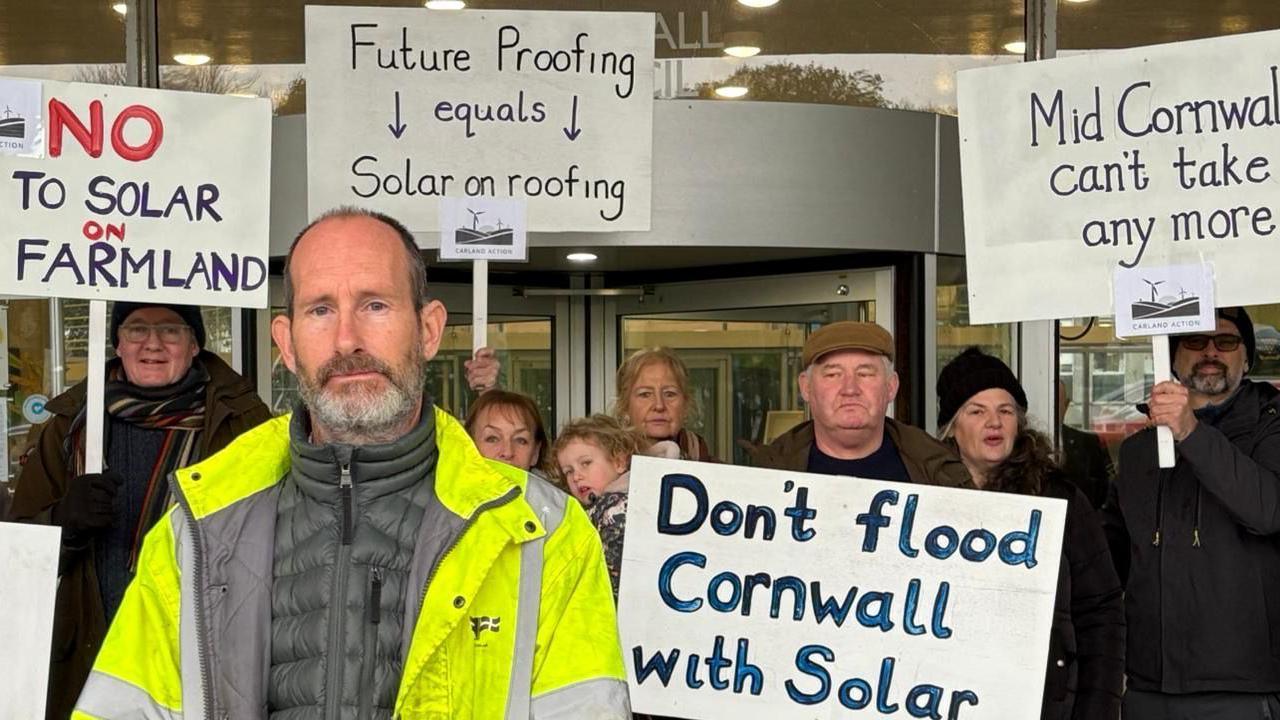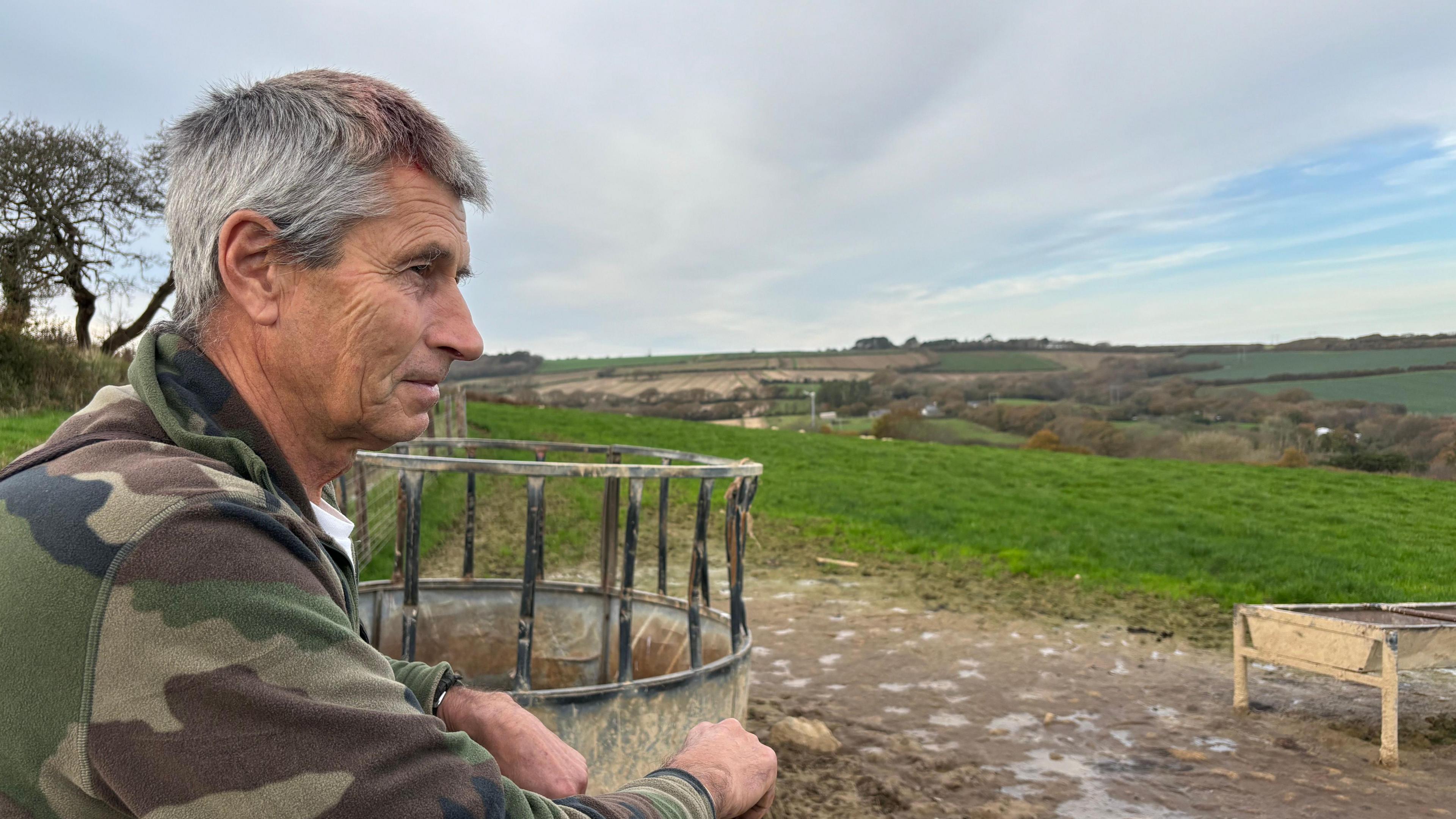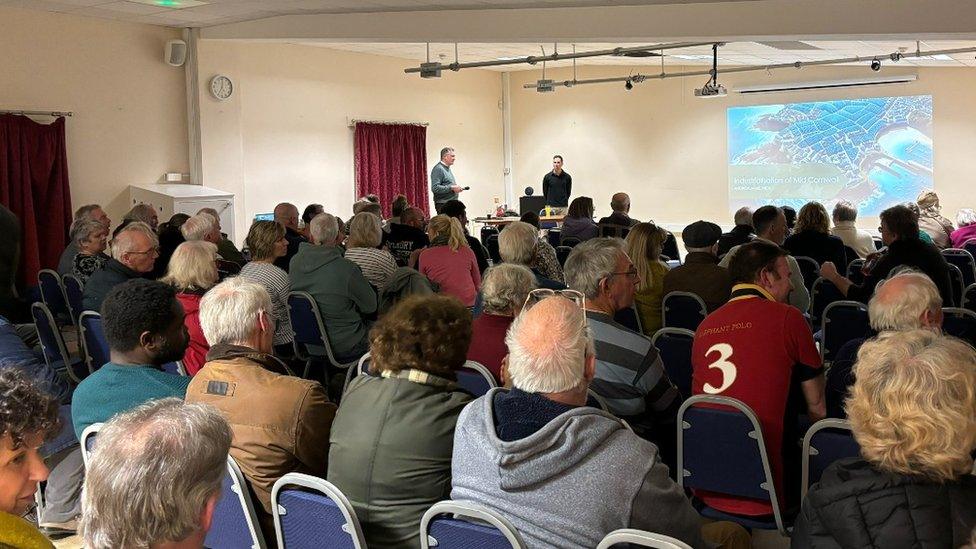Plans for Cornwall's 'biggest' solar farm rejected

Campaigners opposed to the solar farm met to voice their opposition before the meeting
- Published
Plans for what would have been the biggest solar farm in Cornwall have been refused.
People living near the 210 acre site, close to the A30 at Carland Cross, argued it would harm the landscape, take up valuable agricultural land and increase the risk of flooding.
Developers denied that was the case and insisted the development could power 12,000 homes a year and help the UK meet its renewable energy targets.
At an extraordinary meeting of Cornwall Council's Strategic Planning Committee, councillors voted by 8-1 to reject the plan over fears it would adversely impact the area.
At a packed meeting, campaigners insisted the site in Trispen was fertile farmland needed for food.
Fears were also raised about the cumulative impact of having another solar farm near existing ones in mid Cornwall.
Councillor Karen Glasson, who represents Probus and St Erme, welcomed the rejection of the scheme.
She said: "We don't want this development in this area. We are not against renewable energy but these solar farms need to be in the right place and not taking away from local businesses and excellent farmland."

Farmer Nick Dymond says Cornwall is walking into an abyss by developing farmland
Nick Dymond, a farmer from St Erme, spoke against the proposal and said he was ecstatic at its refusal.
He said: "The whole farming industry is going to become more organic in its approach so our production is going to drop and we are going to need more land. We cannot afford to lose farmland to industrialisation."
He said the issue of food security needed to be given greater prominence against the push for more renewable energy projects.
"We are building houses and delivering solar faster than any other county in the country all at the expense of farmland. We're walking into an abyss," he warned.
Downing Renewable Developments, who were behind the scheme, said: "We take the concerns of local communities and stakeholders extremely seriously."
It said the site was not currently used to produce food and that an assessment showed there was no significant flood risk from the project.
"In order to minimise the visual impact, we provided additional screening measures as agreed with local residents," it added.
The developers have the right to appeal the council's decision - which a government planning inspector would then consider.
Follow BBC Cornwall on X (formerly Twitter), external, Facebook, external and Instagram, external. Send your story ideas to spotlight@bbc.co.uk, external.
- Published15 November 2024

- Published16 March 2024
